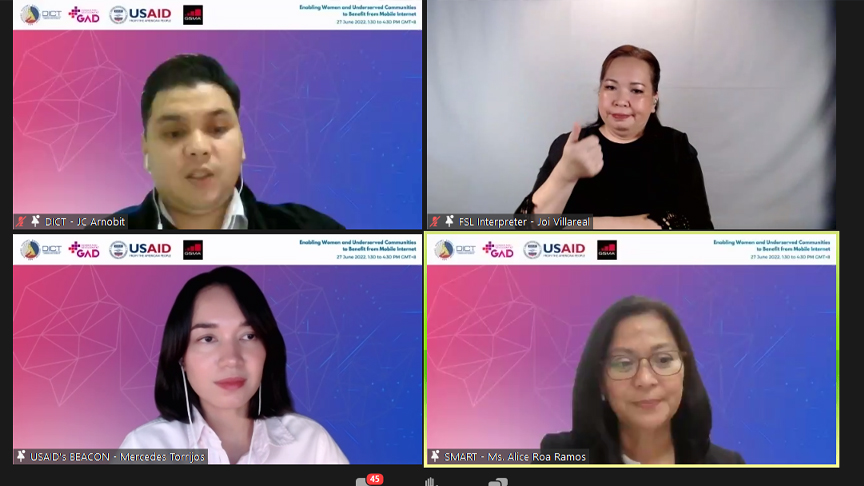PLDT Inc. and Smart Communications, Inc. (Smart) shared their inclusive programs that enable women to benefit from mobile internet, during the recent Women in Digital Transformation Webinar organized by the GSMA.
With representatives from USAID, the Philippine Congress, Department of Information and Communications Technology, Philippine Commission on Women, and others, Alice Ramos, Head of Strategic Partnerships at Smart emphasized that the Global Agenda for Gender Equality ranked high in the company’s priorities.
The telcos believe that connectivity plays an important role in empowering women’s capabilities. Government data showed that in 2021, 86% of women have and use mobile phones. Meanwhile, a Statista report also showed that 50% of internet users in the country are women. In Smart, 49% of subscribers are women.
“We continue to provide our customers with affordable products and services and reliable integrated fixed and wireless networks to meet their connectivity needs for work, education, and livelihood,” said Ramos.
In line with sustainability having been identified as one of the key drivers of the group’s strategy, PLDT and Smart have initiated policies and programs to help the Philippines achieve UN SDG 5: upholding gender equality and SDG 8: promoting decent work and economic growth.
In fact, they are the first Philippine telco members of the Philippine Business Coalition for Women’s Empowerment (PBCWE). The PLDT group has also put in place a broad diversity and inclusion policy, adopted non-discriminatory and equal opportunity practices in the company, along with expanded maternity leaves and special benefits for women.
“We have also participated in programs that promote digital inclusion and livelihood for women, especially from indigenous communities. We have equipped them with tools of the trade that include sewing machines, computers, and digital literacy training,” Ramos added.
PLDT and Smart have also been supportive of social impact tech startup Connected Women, particularly in their Elevate Artificial Intelligence Data Annotation (AIDA) program. Last year, Smart sponsored trainings in AIDA, which led to job opportunities for stay-at-home moms or those who were laid off during the pandemic. From 30 women, the number grew fourfold by end-2021. Smart also provided additional training on how to become retail agents for mobile load to help them augment their income for their families.
“Smart will continue to push the envelope on enabling connected women both in the workplace and the communities that we serve,” Ramos said.







































































































